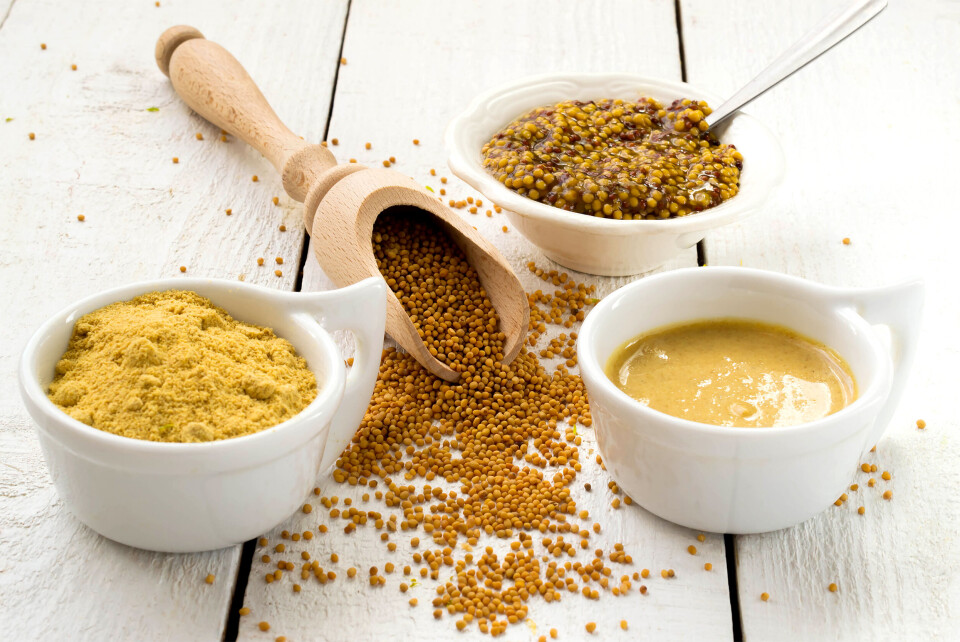-
La Voie Bleue: European Cycle Route of the Year is in France
700km bike path linking Luxembourg and Lyon has been crowned winner of the 2026 title
-
Before and after: Garonne river floods in south-west France
Satellite images show extent of flooding from back-to-back storms in February
-
Home insurance increases expected in France after floods
Compensation costs for the recent storms and flooding across the west and south-west is estimated to be in the billions of euros
The African ‘mustard’ coming to the French condiment’s rescue
A type of African spiced powder is becoming popular as an alternative to mustard, which is in short supply due to severe drought and the war in Ukraine

An African ‘mustard’ known as ‘soumbala’ is becoming more popular in France as a result of shortages of the French condiment caused by a severe drought affecting the grain harvest in Canada, as well as the war in Ukraine.
France imports 80% of the grain raw ingredient used in its ‘homegrown’ mustard recipes. Yet, the drought in Canada has caused shortages of both Brassica juncea and Brassica nigra – brown mustard and black mustard plants from the same family as the rapeseed plant.
Local production in Bourgogne has also been affected by drought conditions, and the war in Ukraine has also affected ‘back-up’ supplies. And while producers have promised that supplies will pick back up by November – because the 2022 harvest was good – shortages still persist currently.
French mustard is the third-most common condiment in France, behind the staples of salt and pepper.
As a result, a type of ‘African mustard’ has become more popular. Soumbala is a type of condiment made from a kind of fava bean: néré, a tree seed from the Sudanese and Saharan savannahs, also known as the purple mimosa.
The yellow pulp of its fruit is used as flour, while its black seeds are either cooked, or fermented and sold as pellets with a characteristic strong smell. They are also dried, roasted and ground into a powder.
Fousseyni Djikine, co-founder of the BMK canteens in Paris, told Le Monde: “When used in this form, it is more like nutmeg. It has a flavour that is difficult to describe. It is not, strictly speaking, a replacement for mustard, but mustard is characteristic of French cuisine.
“But it is like mustard in that its use radically transforms a dish!”
Read more: Horseradish suggested as alternative amid French mustard shortage
Chef Nathalie Brigaud Ngoum, who is of Cameroonian origin, said: “Unlike French mustard or its Eastern cousins, horseradish and wasabi, soumbala does not ‘go up your nose’. But it’s used as a substitute in countries that do not have these spices, especially in the desert Sahara region.”
She explains: "You buy prepared and fermented néré seeds and crush them with oil, vinegar and lemon juice. You can then add cassava or sweet potato flour, for creaminess, and turmeric, to get a nice dark yellow paste.
“You can use it fresh to season meat or fish, or cook and jar it to keep it a little longer. It is a mixed condiment, at the crossroads of European and African cuisines!"
The seeds can be bought in African supermarkets or in health food shops.
Chef Djikine said that the spice has some reputed health benefits, and can even be helpful for people who have high blood pressure.
Mustard shortages come amid other shortages in key ingredients and products, including grain, butter, sunflower oil, eggs, and poultry products.
Related articles
Rush to stock up on oil and flour in France: sales up 55% on 2021
France could face butter shortages by autumn, supermarket head warns
Drought: France faces winter milk shortage, warns farming union head
























